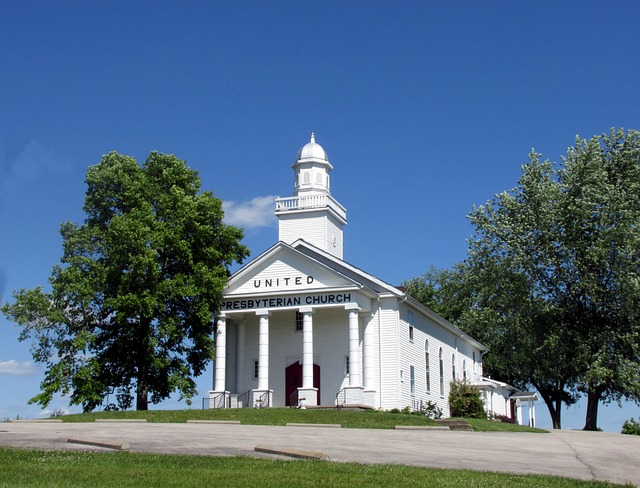Presbyterians, as a denomination, generally do not emphasize or practice speaking in tongues as a regular part of their worship or spiritual experience.
Table of Contents
The Role of Speaking in Tongues in Presbyterian Worship
Do Presbyterians speak in tongues? This is a question that often comes up when discussing the practices and beliefs of different Christian denominations. Speaking in tongues, also known as glossolalia, is a phenomenon where individuals speak in a language that is unknown to them. It is often associated with Pentecostal and charismatic churches, where it is seen as a sign of the Holy Spirit’s presence. But what about Presbyterians? Do they engage in this practice during their worship services?
To answer this question, we need to understand the beliefs and practices of the Presbyterian Church. Presbyterians are known for their emphasis on the Word of God and the importance of preaching and teaching. They believe that the Bible is the ultimate authority and that it should guide their worship and practices. This focus on the Word means that speaking in tongues is not a common occurrence in Presbyterian worship services.
However, it is important to note that not all Presbyterians hold the same beliefs on this matter. There are some Presbyterian churches that do embrace the practice of speaking in tongues, especially those that have been influenced by the charismatic movement. These churches may incorporate elements of glossolalia into their worship services, alongside traditional Presbyterian practices.
In general, though, the Presbyterian Church does not view speaking in tongues as a necessary or normative part of worship. Instead, they place a greater emphasis on the preaching and teaching of the Word. This does not mean that they dismiss or reject the idea of speaking in tongues altogether. Rather, they approach it with caution and discernment, seeking to ensure that it aligns with their understanding of Scripture.
Presbyterians believe that the Holy Spirit is at work in their worship services, but they express this belief in different ways. They may experience the presence of the Holy Spirit through prayer, music, and the sacraments. They also believe that the Holy Spirit empowers and equips believers for service and ministry. This empowerment is not limited to speaking in tongues but can manifest in various gifts and abilities.
It is also worth noting that the Presbyterian Church values order and decency in worship. They believe that worship should be conducted in a way that is respectful and edifying to all participants. This emphasis on order means that spontaneous and uninterpreted speaking in tongues may not be encouraged or practiced in Presbyterian worship services.
In conclusion, while speaking in tongues is not a common practice in Presbyterian worship, there are some Presbyterian churches that do embrace this phenomenon. However, the majority of Presbyterians place a greater emphasis on the preaching and teaching of the Word. They believe that the Holy Spirit is at work in their worship services, but they express this belief in different ways. Ultimately, the role of speaking in tongues in Presbyterian worship is a matter of individual belief and church tradition.
Understanding the Historical Perspective on Speaking in Tongues in Presbyterianism

Do Presbyterians speak in tongues? This is a question that has been asked by many people over the years. To understand the answer, it is important to delve into the historical perspective on speaking in tongues in Presbyterianism.
Presbyterianism is a branch of Protestant Christianity that originated in Scotland in the 16th century. It is known for its emphasis on the sovereignty of God, the authority of Scripture, and the importance of the church community. Speaking in tongues, on the other hand, is a practice associated with Pentecostal and charismatic Christianity, where individuals are believed to be speaking in a language unknown to them, often interpreted as a gift of the Holy Spirit.
Historically, Presbyterians have not placed a strong emphasis on speaking in tongues. This can be traced back to the early days of the Reformation when Presbyterianism was established. The reformers, such as John Calvin and John Knox, focused on the importance of preaching and teaching the Word of God. They believed that the primary way to communicate with God and receive His guidance was through the study and understanding of Scripture.
As Presbyterianism spread throughout Europe and later to the United States, this emphasis on the Word of God continued. The Presbyterian Church became known for its strong commitment to biblical scholarship and theological education. The focus was on understanding and interpreting the Bible, rather than on charismatic experiences such as speaking in tongues.
However, it is important to note that not all Presbyterians have completely rejected the practice of speaking in tongues. There have been instances of individuals within the Presbyterian Church who have claimed to have experienced this gift of the Holy Spirit. These individuals often find themselves in a unique position within the denomination, as their experiences may not align with the traditional Presbyterian understanding of worship and spirituality.
In recent years, there has been a growing recognition within the Presbyterian Church of the diversity of spiritual experiences and practices. Many congregations have become more open to exploring different forms of worship and expression, including the charismatic gifts such as speaking in tongues. This shift can be attributed to a broader movement within Christianity towards a more inclusive and experiential understanding of faith.
It is important to remember that the Presbyterian Church is a diverse denomination, with a wide range of beliefs and practices. While speaking in tongues may not be a common practice among Presbyterians, there are certainly individuals and congregations within the denomination who embrace this spiritual gift.
In conclusion, the historical perspective on speaking in tongues in Presbyterianism reveals a general emphasis on the study and understanding of Scripture, rather than on charismatic experiences. However, there have been instances of individuals within the Presbyterian Church who have claimed to have experienced the gift of speaking in tongues. In recent years, there has been a growing recognition within the denomination of the diversity of spiritual experiences and practices, leading to a more inclusive approach to worship and expression. So, while speaking in tongues may not be a widespread practice among Presbyterians, it is not completely absent from the denomination.
Examining Different Interpretations of Speaking in Tongues within the Presbyterian Tradition
Do Presbyterians speak in tongues? This is a question that has sparked much debate and discussion within the Presbyterian tradition. Speaking in tongues, also known as glossolalia, is a phenomenon that is often associated with charismatic and Pentecostal churches. However, there are varying interpretations of this practice within the Presbyterian tradition.
One interpretation of speaking in tongues within the Presbyterian tradition is that it is a gift of the Holy Spirit that was present in the early church but is not necessarily a normative practice for all believers today. This view is often referred to as cessationism. Cessationists believe that the gifts of the Holy Spirit, including speaking in tongues, were given for a specific purpose during the early days of the church but are no longer necessary or present in the same way today.
On the other hand, there are Presbyterians who believe that speaking in tongues is a valid and ongoing practice for believers today. This view is often associated with the charismatic movement within the Presbyterian tradition. Charismatics believe that the gifts of the Holy Spirit, including speaking in tongues, are still active and available to believers today. They see speaking in tongues as a way to express a deep connection with God and to experience the power of the Holy Spirit in their lives.
It is important to note that not all Presbyterians fall neatly into one of these two categories. There are many who hold a more nuanced view on speaking in tongues. They may believe that speaking in tongues can occur but that it should be done in an orderly and edifying manner, as outlined in the apostle Paul’s instructions in 1 Corinthians 14. These individuals may also emphasize the importance of interpretation when speaking in tongues, as Paul also instructs in the same passage.
Regardless of their specific interpretation, most Presbyterians would agree that the primary focus should be on the fruit of the Spirit rather than the gifts of the Spirit. Love, joy, peace, patience, kindness, goodness, faithfulness, gentleness, and self-control are seen as the true evidence of the Holy Spirit’s work in a believer’s life. Speaking in tongues, while potentially a valid expression of one’s faith, should not be elevated above these qualities.
In conclusion, the question of whether Presbyterians speak in tongues is a complex one. There are differing interpretations within the Presbyterian tradition, ranging from cessationism to charismatic beliefs. Some Presbyterians believe that speaking in tongues is a valid and ongoing practice, while others see it as a gift that was present in the early church but is not necessarily normative for all believers today. Still, others hold a more nuanced view, emphasizing the importance of order and interpretation when speaking in tongues. Regardless of their specific beliefs, most Presbyterians would agree that the fruit of the Spirit should be the primary focus in the Christian life. Love, joy, peace, and the other qualities outlined by the apostle Paul should be the true evidence of the Holy Spirit’s work in a believer’s life.
Exploring the Contemporary Practices of Speaking in Tongues among Presbyterians
Do Presbyterians speak in tongues? It’s a question that many people have, especially those who are unfamiliar with the practices and beliefs of the Presbyterian Church. Speaking in tongues is often associated with charismatic or Pentecostal churches, where it is seen as a sign of the Holy Spirit’s presence and power. But what about Presbyterians? Do they engage in this practice?
To answer this question, it’s important to understand the beliefs and practices of the Presbyterian Church. Presbyterians are known for their emphasis on the Word of God and the importance of sound doctrine. They believe that the Bible is the inspired and authoritative Word of God, and they seek to base their beliefs and practices on its teachings.
In terms of speaking in tongues, Presbyterians have a more nuanced view. While some individual Presbyterians may engage in this practice, it is not a widespread or common occurrence within the denomination. This is because Presbyterians place a strong emphasis on order and decency in worship, and they believe that the gifts of the Holy Spirit should be exercised in an orderly and edifying manner.
Presbyterians also believe that the gift of tongues, as described in the New Testament, was a specific gift given to the early church for a specific purpose. In the book of Acts, we see that the gift of tongues was given to the apostles on the day of Pentecost as a sign to the Jewish people that the gospel was now being extended to the Gentiles. It was a miraculous sign that accompanied the preaching of the gospel and the establishment of the early church.
However, Presbyterians do not believe that the gift of tongues is a necessary or normative practice for all believers. They believe that the Holy Spirit gives a variety of gifts to believers for the building up of the church, and that speaking in tongues is just one of those gifts. They also believe that the gift of tongues, like all spiritual gifts, should be exercised in a way that is edifying to the church and in accordance with the teachings of Scripture.
So, while some individual Presbyterians may speak in tongues, it is not a practice that is encouraged or emphasized within the denomination as a whole. Presbyterians place a greater emphasis on the preaching and teaching of the Word of God, and they believe that the Holy Spirit works through the proclamation of the gospel and the faithful teaching of Scripture.
In conclusion, the question of whether Presbyterians speak in tongues is not a simple one. While some individual Presbyterians may engage in this practice, it is not a widespread or common occurrence within the denomination. Presbyterians place a strong emphasis on order and decency in worship, and they believe that the gifts of the Holy Spirit should be exercised in an orderly and edifying manner. They also believe that the gift of tongues, while a valid and important gift, is not a necessary or normative practice for all believers. Ultimately, Presbyterians seek to base their beliefs and practices on the teachings of Scripture and the guidance of the Holy Spirit.
Conclusion
Presbyterians generally do not emphasize or practice speaking in tongues as a regular part of their worship or spiritual experience.



